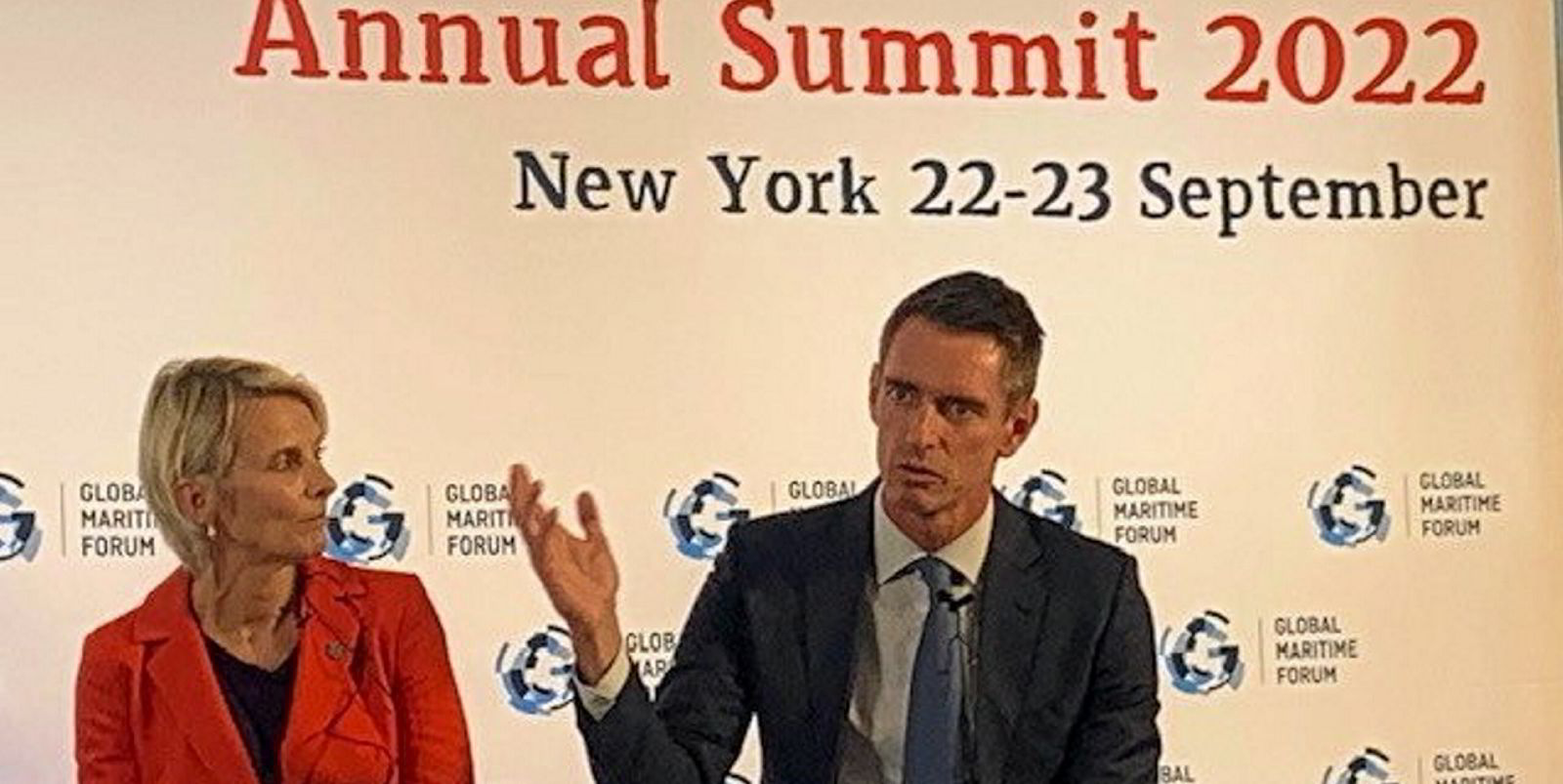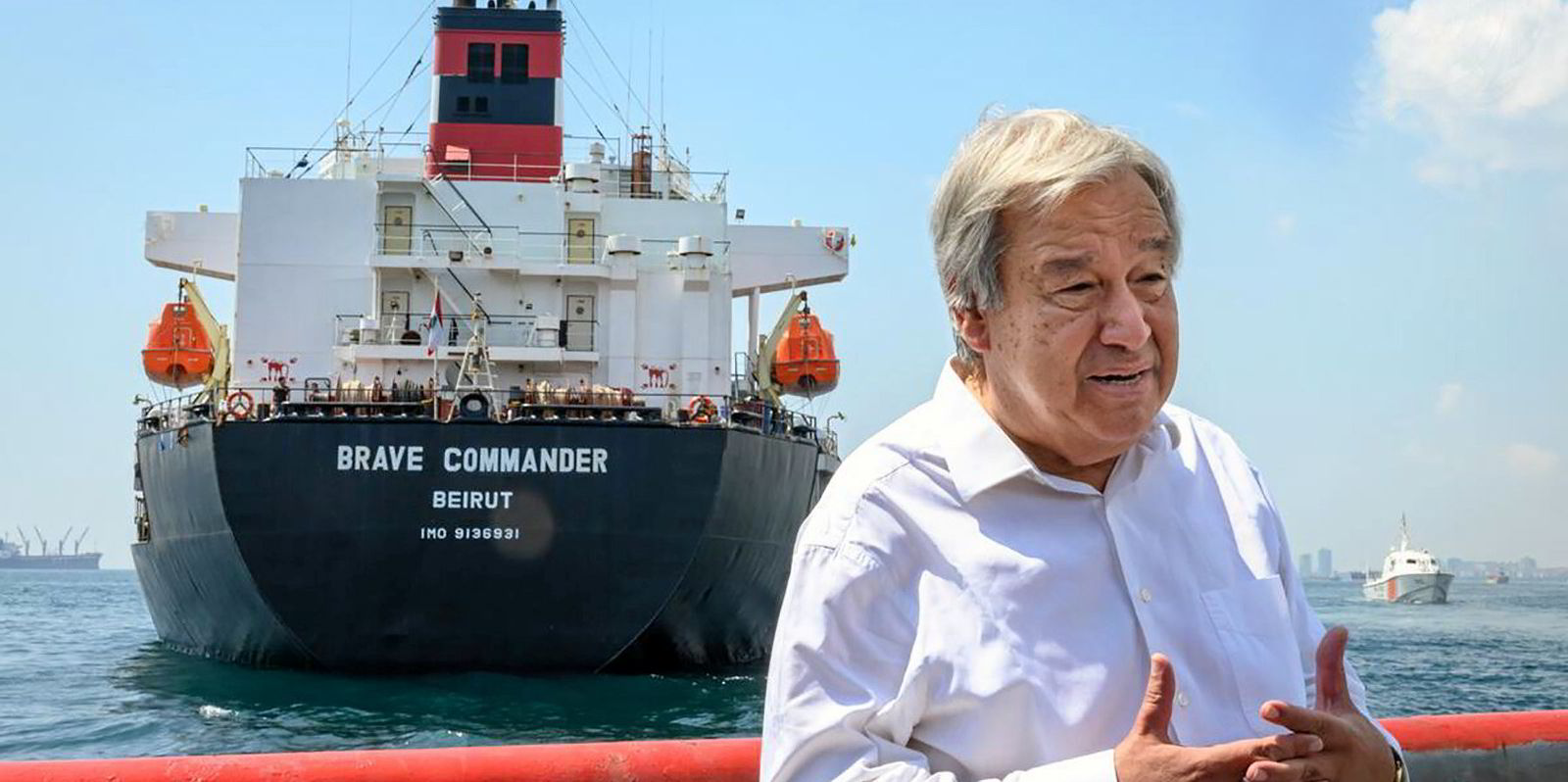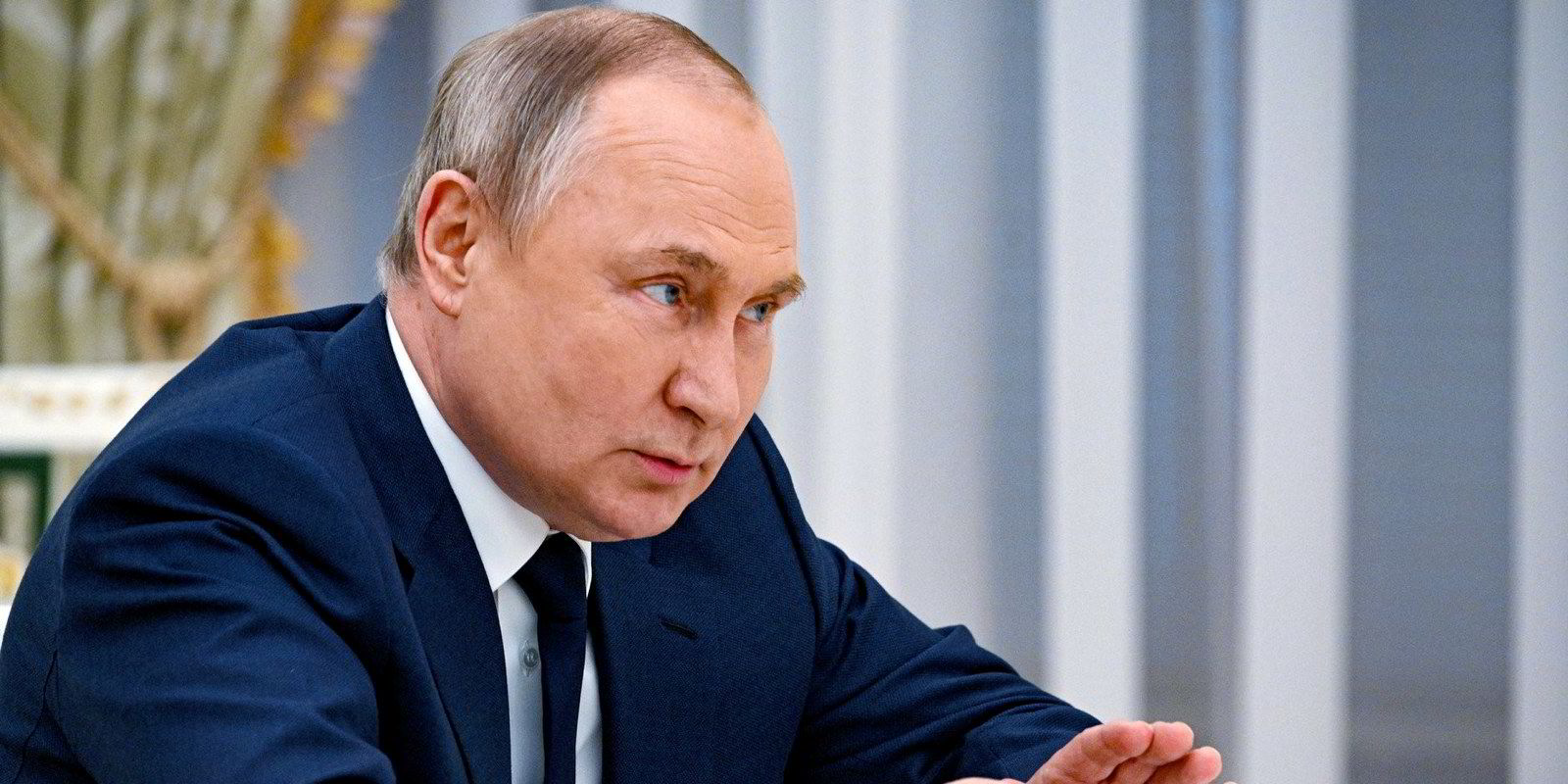The energy crisis triggered by Russia’s invasion of Ukraine has accelerated the energy transition by up to 10 years, an influential figure has asserted.
Trafigura global head of fuel decarbonisation Rasmus Bach Nielsen said he had personal experience that political momentum and support for the fundamental change in energy sources had been sped up, rather than hindered, by the crisis in the supply and price of fossil fuels from Russia.
“The green transition is happening,” he said. “I think Putin has pushed it at least five years forward, if not 10.”
Bach Nielsen was speaking in New York during Climate Week and ahead of this year’s Global Maritime Forum meeting at the launch of a new assessment of the shipping industry’s progress towards decarbonisation goals.
He has played an active part over the last two years behind the scenes, lobbying for faster action to decarbonise shipping.
Sanctions imposed on Russia by Western countries over the invasion of Ukraine have caused upheaval in energy markets. Gas prices in Europe have been up to 10 times historic levels as Russia shut off supplies, and oil prices have consistently traded over $100 per barrel.
Some countries have turned back towards fossil fuels and nuclear power to ease the crisis.
Asked if the impact was accelerating rather than hindering the energy transition, Denmark-based Bach Nielsen said: “For sure. I am convinced of it. I see that from personal experience, having spent a lot of time with politicians from Denmark and other countries.”
Development of hydrogen pipelines and offshore wind farms were being sped up.
“I am very convinced that Putin has pushed us five to 10 years forward,” he said.
The Climate Action in Shipping Report — Progress towards Shipping’s 2030 Breakthrough has been compiled by the Getting to Zero Coalition in partnership with the Global Maritime Forum, the World Economic Forum and others. It is intended as a benchmark in assessing progress towards the 2030 decarbonisation goals.
Shipping is only “partially on track” towards the technology and supply of 5% of the world’s maritime fuel as zero carbon by 2030, the report found.
Katharine Palmer, one of the report’s lead authors, said: “This report acts as an honest stocktake of progress, which needs to continue to be monitored and tracked. In the run-up to COP27, this is an important milestone to signal a true shift to delivery to convert these commitments and pledges to actions and solutions.”
Palmer, who is shipping lead at the United Nations High-Level Climate Champions team, added: “To achieve the 2030 breakthrough goal, we need near-term project level action describing tangible, collective action required.”
Domagoj Baresic, a consultant at UMAS and fellow co-author of the report, said: “In order for the shipping industry to decarbonise, multiple actions which can increase production and adoption of scalable zero-emission fuels in the industry are required now.
“This report provides evidence for the significant progress which has been made to decarbonise shipping, yet at the same time shows that further significant action is required.
“The evidence presented shows now is the time to take the necessary actions to ensure that by 2030 the industry is committed to a decarbonisation trajectory.”
Bach Nielsen said the attitude in shipping towards decarbonisation had itself transitioned over the last two years from scepticism to optimism.
“Two years back, there was literally nothing happening in the shipping space,” he said. “We have to appreciate as an industry how fast and how much has happened.
“If I look back over the two years past, we have seen a lot of scepticism among IMO [International Maritime Organization] nations, a lot of scepticism among businesses.
“However, that scepticism has been transitioned into optimism. We have seen and felt a mindset change that is historic.”
The next key driver was action at the IMO to agree and implement carbon pricing to ensure the market would drive the transition.
Market-based measures are now being proposed, which was unthinkable two years ago. A key meeting next summer will consider whether to adopt carbon pricing as part of an updated IMO carbon policy.
“For the industry to transition, we need the market to drive the transition,” he said.
“And in order to have this market, we need sustainable zero emission fuels cost neutralised.
“And here lies the big responsibility in the IMO. As it is the IMO which can govern and regulate this. I am optimistic in the sense that [the] IMO is moving forward, however, we should not underestimate the importance of where we are today.”
He said the IMO should not slow its momentum because of the war in Ukraine.
“I don’t think IMO has any excuse to stop their policy-making,” he said.
But if the IMO failed, he added: “The IMO would be letting down the shipping industry and the transition and progress we have seen in the last two years.”





